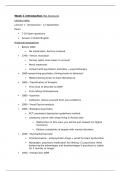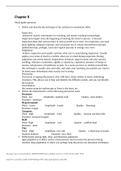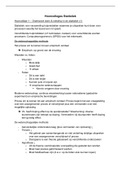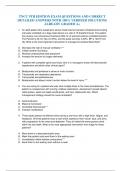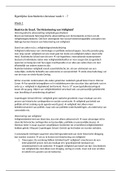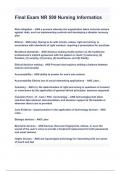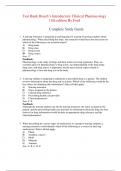Samenvatting
Summary Alle literatuur en hoorcollege-aantekeningen Neuropsychology And Psychiatric Disorders
- Instelling
- Rijksuniversiteit Groningen (RuG)
De samenvatting bevat alle benodigde artikelen en leesstof voor het vak Neuropsychology And Psychiatric Disorders (dit studiejaar '24-'25). Daarnaast bevat het document ook alle hoorcollege aantekeningen: schizophrenia, mood disorders, ADHD, Tourette syndrome, ASS en identity & severe mental illne...
[Meer zien]
